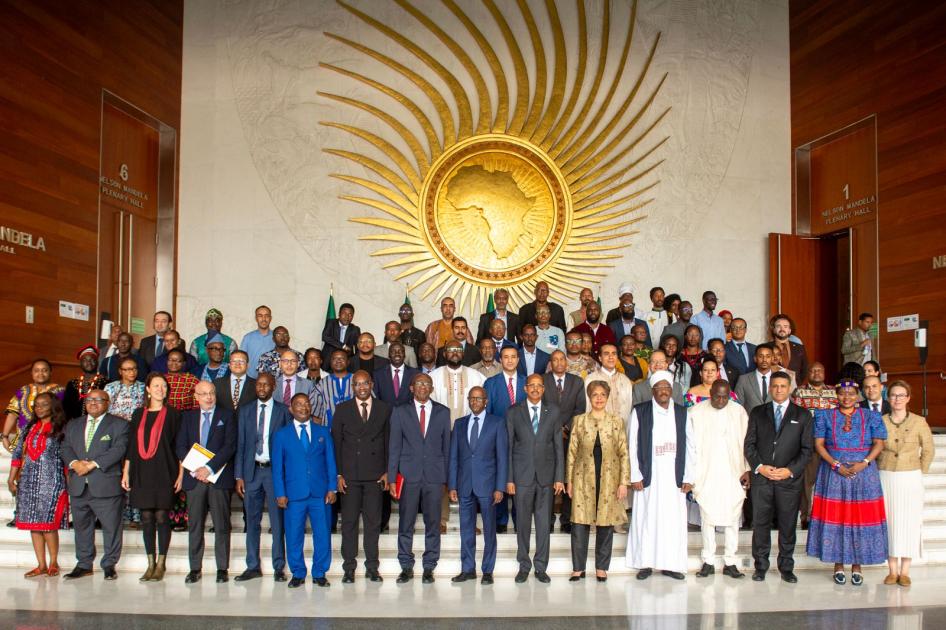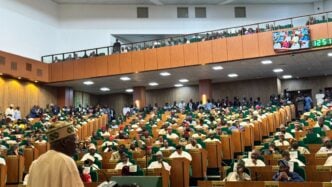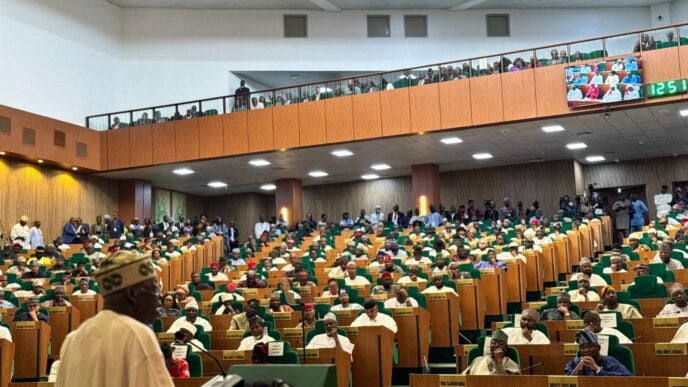For me, Africa Day—celebrated annually on May 25—readily brings to mind one remarkable individual and one pivotal institution. The individual is Tajudeen Abdul-Raheem, a respected scholar and passionate pan-Africanist, whose life was tragically cut short on Africa Day in 2009, at just 48 years old.
The institution is the UBA Group, in part because of an invitation I received from them, in 2020, to be on a panel, themed “Domestic Policies, Regional Development and a Global Agenda: SDGs and African Development at a Crossroad”, organized to commemorate Africa Day that year.
The email invitation included this paragraph: “As a leading pan African Bank with subsidiaries in 20 African countries and operations in the UK, USA and presence in France, UBA is constantly seeking to promote the Unity of Africa. It is who we are.” Since then I have closely followed the Bank’s enthusiastic celebration of Africa Day each year.
I have another personal story that captures the significance of the ‘A’ in U-B-A. Some years ago, in Cambridge, Massachusetts, USA, I met an American gentleman, investment banker and art collector, who, upon hearing I was Nigerian, shared two memorable links to the continent.
Advertisement
The first was his participation, as a teenager, in an epic road trip from Paris to Lagos in the 1960s. The second was going ahead to serve, in the 1970s, on the board of UBA, representing one of the Bank’s international shareholders. In my mind the story of that enthralling trans-Saharan trip blended seamlessly with that of the bank that now proudly describes itself as “Africa’s global bank.”
Now, another Africa Day is here, presenting an opportunity to reflect on the continent’s journey, and on the responsibilities confronting us as Africans committed to African progress.
It’s worth taking a moment to recall the radical origins of the Day. It was instituted to mark the founding of the Organization of African Unity (OAU)—the precursor of the African Union—established at a defining moment for the continent: when countries were gaining independence and trying to come to terms with what this meant, against the backdrop of a confusing and intensifying Cold War.
Advertisement
The choice of Ethiopia—one of only two African countries never colonized—as the site for the OAU’s headquarters was profoundly symbolic, reflecting the bold, revolutionary spirit of the organization’s founding fathers. As the New York Times noted in its coverage of the 1964 OAU Summit, “Attacks on colonialism dominated the speeches and resolutions.”
That spirit of radicalism is now more than ever needed by the continent—but in action, not just rhetoric. Tajudeen Abdul-Raheem embodied this stance; stridently calling for “giving African citizenship to all Africans wherever they may be”, and for a completely borderless intra-African trade; this long before the African Continental Free Trade Area became a reality.
As we celebrate the 2025 Africa Day, we honour the efforts of activists and advocates like Abdul-Raheem, as well as financial institutions like the UBA that are channeling resources towards achieving the most important mission after political independence: fiscal liberation. An imperative that has become even more urgent given the way American politics is upending the global economic order.
It sounds like a cliché to say that Africa stands at a crossroads. But it is true, as many cliches are. For the continent, this decade began in the most disruptive way possible, with Covid-19 laying bare grave and disturbing inequalities in global vaccine access. Shortly after, the Russian invasion of Ukraine, disrupting grain supplies and pushing many countries to the brink of hunger. And now, the US trade tariffs and the dwindling of global aid funding.
Advertisement
All these shocks have come with vital lessons, that ultimately Africa has to look out for itself; that it must prioritize developing the capacity to feed itself and build the manufacturing value chains required to produce essential goods. No one else will do it for us.
We also have to put in the hard work required to mobilize investments into transformational projects, across energy, agriculture, transport and logistics, healthcare, education and skilling, manufacturing, and other areas.
The harsh lessons of the last five years have since spurred African institutions to step up impressively; lending urgency to the implementation of the AfCFTA; birthing the African Pharmaceutical Technology Foundation to build the continent’s capacity to produce medicines and vaccines; and propelling UBA Group into a landmark $6 billion agreement with the African Continental Free Trade Area (AfCFTA), for financing SMEs across the continent.
And then, just this year, African Union Heads of State approved the establishment of an African Credit Rating Agency, and an African Financial Stability Mechanism; two significant initiatives that will remake the African financial landscape. Also this year an African Energy Bank will be taking off, and in 2028, the African Central Bank is scheduled to commence operations.
Advertisement
There is indeed plenty of reason to be optimistic, excited even, about what the future holds for the continent—not least of which is a youthful population that will fuel global economic growth in the decades ahead. And, despite many challenges, despite geopolitical and economic shocks, despite the uncharted waters that lie ahead, it appears that we are in an era of unprecedented African confidence and ambition.
We now have to translate these attributes into true and enduring growth and prosperity that leaves no African behind. Betting on Africa is a no-brainer, as the UBA story demonstrates: in 2024, 51.7 percent of total Group revenue came from operations outside Nigeria, i.e. the twenty African countries they operate in, as well as the UK, UAE, USA and France. In 2019, this figure was 31 percent.
Advertisement
All around us there is proof that the way forward for unleashing Africa’s potential lies in bold action by and for the continent—mobilizing trade and investment, deepening cooperation, financing SMEs, supporting the next generation of African business champions—and not hand-wringing. To borrow the words of the late Tajudeen Abdul-Raheem’s email signature: “Don’t agonise; Organise!”
And in the words of Tony Elumelu, the Group Chairman of UBA, “No one but us will develop Africa” — a core belief and driving force behind Africapitalism, which emphasizes the importance of Africans owning and leading the continent’s development.
Advertisement
Africa Day 2025 is another chance to reflect on these timeless pieces of wisdom, and to celebrate the remarkable African individuals and institutions who are actively walking the talk, and funding it.
Advertisement
Views expressed by contributors are strictly personal and not of TheCable.










